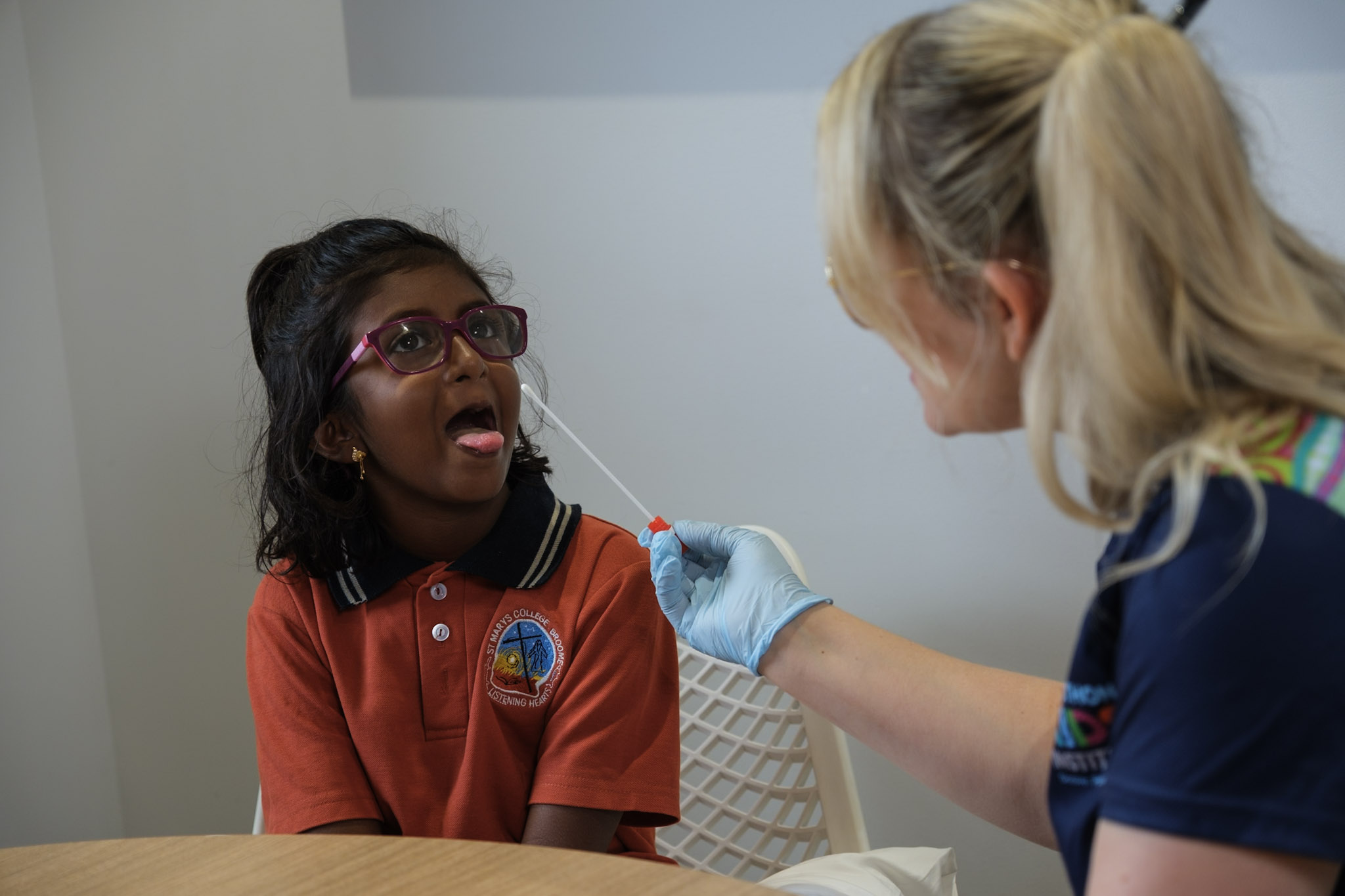Search
Research
COVID-19 Response and Lessons Learned on Dengue Control in BhutanCoronavirus disease 2019 (COVID-19) is an acute respiratory illness caused by severe acute respiratory syndrome coronavirus 2 (SARS-CoV-2). SARS-CoV-2 initially was identified from a cluster of patients admitted with ‘pneumonia of unknown etiology’ in late December 2019 to hospitals in Wuhan, Hubei Province, China.
Research
Djaalinj Waakinj (listening talking): Rationale, cultural governance, methods, population characteristics–an urban Aboriginal birth cohort study of otitis mediaThe majority of Australian Aboriginal and Torres Strait Islander (hereafter referred to as “Aboriginal”) people live in urban centres. Otitis media (OM) occurs at a younger age, prevalence is higher and hearing loss and other serious complications are more common in Aboriginal than non-Aboriginal children. Despite this, data on the burden of OM and hearing loss in urban Aboriginal children are limited.
Research
Pneumococcal conjugate vaccine primes mucosal immune responses to pneumococcal polysaccharide vaccine booster in Papua New Guinean childrenInvasive pneumococcal disease remains a major cause of hospitalization and death in Papua New Guinean (PNG) children. We assessed mucosal IgA and IgG responses in PNG infants vaccinated with pneumococcal conjugate vaccine (PCV) followed by a pneumococcal polysaccharide vaccine (PPV) booster.
Research
Estimation of the force of infection and infectious period of skin sores in remote Australian communities using interval-censored dataPrevalence of impetigo (skin sores) remains high in remote Australian Aboriginal communities, Fiji, and other areas of socio-economic disadvantage. Skin sore infections, driven primarily in these settings by Group A Streptococcus (GAS) contribute substantially to the disease burden in these areas. Despite this, estimates for the force of infection, infectious period and basic reproductive ratio-all necessary for the construction of dynamic transmission models-have not been obtained.
Research
Pediatric Burn Survivors Have Long-Term Immune Dysfunction With Diminished Vaccine ResponseEpidemiological studies have demonstrated that survivors of acute burn trauma are at long-term increased risk of developing a range of morbidities. The mechanisms underlying this increased risk remain unknown. This study aimed to determine whether burn injury leads to sustained immune dysfunction that may underpin long-term morbidity. Plasma and peripheral blood mononuclear cells were collected from 36 pediatric burn survivors >3 years after a non-severe burn injury (<10% total body surface area) and from age/sex-matched non-injured controls.
Research
Nasopharyngeal density of respiratory viruses in childhood pneumonia in a highly vaccinated setting: findings from a case-control studyDetection of pneumonia-causing respiratory viruses in the nasopharynx of asymptomatic children has made their actual contribution to pneumonia unclear. We compared nasopharyngeal viral density between children with and without pneumonia to understand if viral density could be used to diagnose pneumonia.
Research
Screening and Management Practices for Polyoma (BK) Viremia and Nephropathy in Kidney Transplant Recipients From the Lands Down Under: Addressing the Unknowns and Rationale for a Multicenter Clinical TrialBK polyomavirus infection in transplanted kidneys that leads to BK virus–associated nephropathy (BKVAN) is an important cause of allograft loss and has limited treatment options. Recent data suggest that BK viremia affects approximately 10% of people within the first 12 months following kidney transplantation. Among recipients with BKVAN, the overall risk of allograft loss is substantially increased, estimated to be 50% within 5 years of diagnosis.
Research
Adjunctive protein synthesis inhibitor antibiotics for toxin suppression in Staphylococcus aureus infections: a systematic appraisalA summary of the literature regarding the use of adjunctive protein synthesis inhibitors for toxin suppression in the setting of S. aureus infections is presented


News & Events
One in six kids found to have Strep A throughout Kimberley regionAn alarming number of Strep A infections are going unnoticed throughout classrooms in Broome and Derby according to a major study by The Kids Research Institute Australia aiming to reduce the burden of acute rheumatic fever (ARF) and rheumatic heart disease (RHD).
